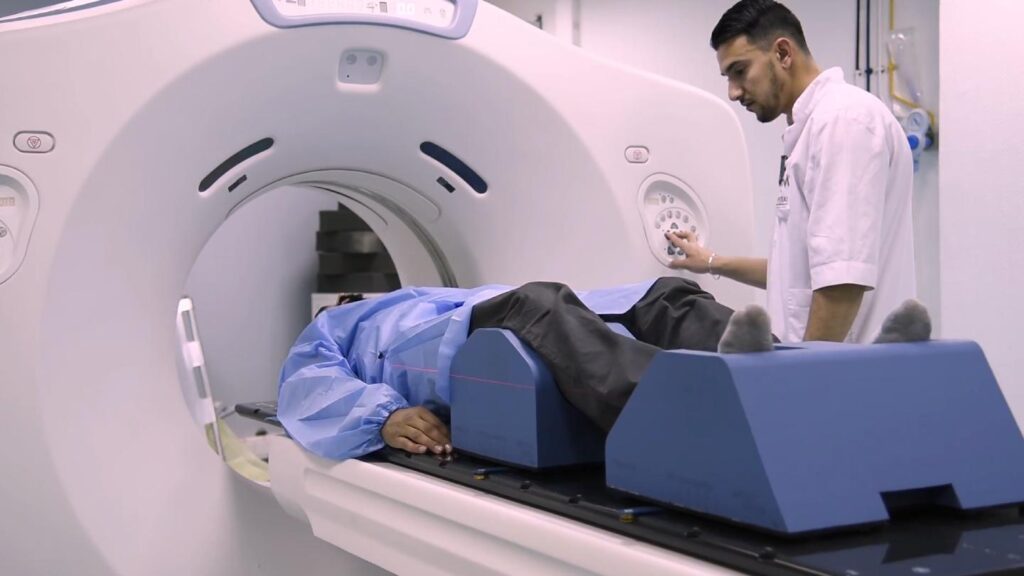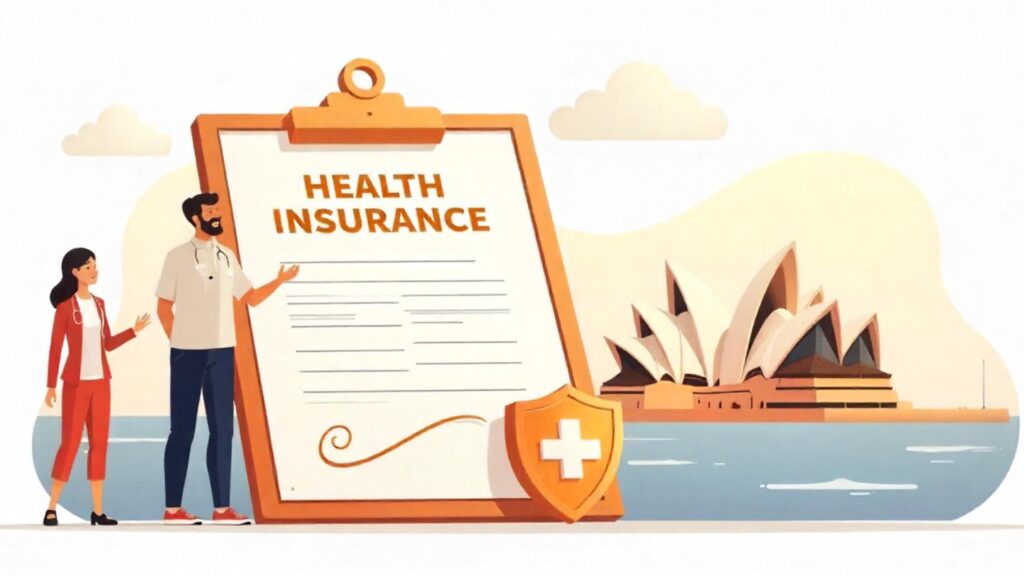Access to healthcare in Algeria is provided through a combination of public and private systems. The public sector offers universal coverage funded by the government and social insurance programs, while private clinics serve those seeking faster or more specialized care. Both systems play important roles in meeting the population’s medical needs.
Understanding Algeria’s health insurance system is especially important for expats and travelers. Public healthcare primarily serves citizens and legal residents, so foreigners often face limited access or high out-of-pocket costs.
For visitors and expatriates, having adequate health insurance is essential to ensure timely and quality medical treatment. This guide explains how Algeria’s healthcare works and what insurance options are available to protect your health while in the country.
Overview of Algeria’s Healthcare System
Algeria’s healthcare system consists of both public and private sectors that serve the medical needs of the population. Understanding how these two parts function and interact helps clarify access, costs, and quality of care available across the country.
Structure: Public Versus Private
The public healthcare system is the backbone of medical services in Algeria. It offers widespread coverage to citizens through government-funded hospitals and clinics. Public facilities provide a range of services from primary care to specialized treatments, aiming to make healthcare accessible to all socioeconomic groups.
In contrast, the private sector operates independently and focuses on providing quicker, more personalized care with modern facilities. Private clinics are mostly found in larger cities and cater to patients who can afford higher fees or have private insurance.
Accessibility and Affordability
Public healthcare in Algeria is largely free or subsidized, making it affordable for the majority of the population. This system is funded by the government and supported through mandatory contributions from salaried and self-employed workers.
While accessibility in urban areas is generally good, rural and remote regions may face shortages of medical professionals and equipment.
Private healthcare, though more accessible in cities, comes with higher costs that are often paid out-of-pocket unless covered by private insurance.
Government Role in Funding and Regulation
The Algerian government plays a central role in regulating healthcare services and financing public health institutions. It allocates budget resources to hospitals, sets national health policies, and manages social insurance schemes like CNAS and CASNOS.
These programs ensure that most citizens have access to essential medical care without direct charges at the point of service. The government also oversees quality standards for both public and private healthcare providers to maintain safe and effective treatment.
Public Health Insurance in Algeria
Algeria maintains a universal healthcare system, and public health insurance is a cornerstone of that structure. Administered through national funds, the system ensures that salaried and self-employed individuals receive access to essential medical services.
The two main programs, CNAS and CASNOS, provide varying levels of coverage depending on the type of employment.
CNAS covers salaried workers, while CASNOS serves self-employed individuals. Both programs are key to Algeria’s healthcare framework.
CNAS: For Salaried Workers
The Caisse Nationale des Assurances Sociales des Travailleurs Salariés (CNAS) is Algeria’s primary public insurance provider for salaried employees. It is funded through payroll contributions made jointly by employers and employees.
Eligibility and Registration
Salaried workers in both the public and private sectors are automatically enrolled in CNAS when they start formal employment. Registration is typically handled by the employer, who must declare the employee to the CNAS office.
Workers receive a social security number, which is used to track contributions and access benefits.
Coverage Details
CNAS provides broad coverage for a wide range of medical needs. These include:
- Inpatient services such as surgery and hospitalization
- Outpatient care, including general consultations and specialist visits
- Maternity care and childbirth support
- Prescription medications and diagnostic tests
- Rehabilitation services and long-term care in approved cases
Additional benefits may include temporary disability compensation and support for work-related injuries.
CASNOS: For Self-Employed Workers
The Caisse Nationale de Sécurité Sociale des Non-Salariés (CASNOS) manages health insurance for self-employed individuals. This group includes freelancers, small business owners, artisans, and independent professionals such as doctors or lawyers.
Who Qualifies
Anyone earning income independently and not classified as a salaried employee is required by law to register with CASNOS. This includes both full-time self-employed individuals and part-time independent earners who do not contribute to CNAS.
Contribution Requirements
Contributions to CASNOS are mandatory and based on a declared annual income. The contribution rate is fixed, though it may vary depending on the sector or income bracket. Payments are typically made annually, and failure to pay on time can result in penalties or loss of coverage.
Benefits Covered
CASNOS provides similar healthcare services to those offered under CNAS, including:
- General and specialist medical consultations
- Hospitalization and surgical procedures
- Maternity services
- Prescribed medications
- Access to some dental and optical care
In certain cases, CASNOS may also offer disability or pension benefits for contributors with long-term health issues.
Who Is Covered
Dependents and Retirees
Both CNAS and CASNOS extend coverage to dependents, including spouses and children. Once registered, the primary insured person can add family members to their file.
Retired workers continue to receive health benefits through the same system, though some services may require co-payment.
Citizens, Residents, and Foreign Workers
Algerian citizens are the primary beneficiaries of the public health insurance system. Legal residents who are employed or self-employed also qualify, provided they register and contribute through CNAS or CASNOS.
Foreign workers with valid work permits may be included under CNAS, depending on their employment contract and employer compliance.
However, temporary visitors and undocumented workers are generally not eligible for public health insurance and must rely on private payment or international insurance.
Private Healthcare Options
While Algeria’s public health system covers the majority of citizens, private healthcare has expanded significantly in recent years. This sector provides an alternative for those seeking faster service, more comfortable facilities, or specialized treatments not always available in public hospitals.
Growth of Private Clinics
Private clinics and hospitals are mainly concentrated in larger cities such as Algiers, Oran, and Constantine. These urban centers offer more options for private care, including specialized medical services and advanced diagnostic equipment.
In contrast, rural and remote areas have very limited access to private healthcare facilities. The quality of care in private clinics generally exceeds that of public hospitals, featuring shorter wait times, modern technology, and more personalized attention from medical staff.
Costs and Payment Methods
Unlike public healthcare, private medical services are not covered by Algeria’s national insurance programs. Patients must pay the full cost of treatment at the time of service. Payments are usually required upfront, and prices can vary widely depending on the clinic and type of care.
For expatriates and visitors, this means having international health insurance or sufficient funds is essential to avoid high out-of-pocket expenses. Some private providers may accept insurance reimbursements, but this depends on the policy and agreements in place.
Health Insurance for Expats and Visitors
Algeria’s public health insurance system primarily serves its citizens and legal residents. For expatriates and visitors, relying on local public healthcare alone can be risky.
Understanding why international health insurance is essential and what to look for in a policy can help ensure access to quality medical care during their stay.
Why International Health Insurance Is Essential
The public healthcare system in Algeria has limitations for non-citizens. Expats often face challenges such as restricted access to government-funded health services and difficulty navigating administrative procedures.
In addition, language barriers can affect communication since most public hospitals operate in French or Arabic, which may not be comfortable for foreigners. The quality and availability of care also vary, especially outside major cities.
Moreover, serious medical emergencies may require evacuation to a facility in another country. Emergency medical evacuation is typically not covered by Algerian public healthcare and can be prohibitively expensive.
Therefore, international health insurance that includes coverage for evacuation and repatriation is highly recommended for anyone living or traveling in Algeria.
What to Look for in a Policy
When choosing health insurance for Algeria, it is important to select a policy that provides comprehensive coverage. Essential components include:
- Inpatient and outpatient care for illnesses and injuries
- Emergency medical evacuation and repatriation services
- Access to specialist consultations and preventive care
Global coverage is also a valuable feature, as it offers protection both within Algeria and internationally. Many insurers provide plans tailored to expatriates and frequent travelers, including those with flexible terms and direct billing arrangements with private clinics.
While there are several international insurance providers offering plans valid in Algeria, it is advisable to compare policies carefully, focusing on coverage limits, exclusions, and the insurer’s reputation for claims handling.
Pharmacies and Medications in Algeria
Access to medications is an important consideration for both residents and visitors in Algeria. Pharmacies are widespread in urban centers, but availability and regulations may vary depending on the location.
Availability of Pharmacies
Pharmacies are commonly found in cities and larger towns across Algeria. They typically stock a broad range of over-the-counter medicines as well as prescription drugs.
However, in rural or remote areas, access to pharmacies and certain medications can be limited, so planning ahead is important.
Prescription Requirements
For many medications, a prescription from a licensed Algerian doctor is required. Pharmacists usually follow strict regulations and will ask to see a prescription before dispensing certain drugs. This applies especially to antibiotics, controlled substances, and specialized treatments.
It is advisable for visitors or expats to consult local medical professionals if they require prescription medications during their stay.
Importing Medications
Travelers should bring an adequate supply of any essential medications with them. It is helpful to carry prescriptions and medical documentation translated into French, as this is the official language used in medical settings.
When entering Algeria, personal medication is generally allowed for private use, but large quantities or certain drugs may require official authorization. Checking the latest customs regulations before travel can prevent complications.
Emergency Medical Services and Health Risks
Understanding local health risks and how to access emergency services is essential for anyone living in or visiting Algeria. Being prepared can help minimize complications in urgent situations.
Common Local Health Issues
Algeria’s climate and environment contribute to certain health concerns. Heatstroke and dehydration are common, especially during the hot summer months.
Additionally, dust storms can cause respiratory problems, particularly for people with asthma or other chronic lung conditions. It is important to stay hydrated, avoid prolonged exposure to extreme heat, and take precautions during dust storms by wearing protective masks if necessary.
Emergency Contact Numbers
In case of emergencies, Algeria has designated phone numbers to quickly reach help:
- Police: 17
- Fire Department: 14
- Ambulance and Medical Emergencies: 213
These numbers connect callers to local emergency services. Calling operators usually speak Arabic and French, so having a basic understanding of these languages or access to a translator can be helpful.
Language Barriers in Urgent Care
Many emergency responders and medical staff communicate primarily in Arabic or French. This language barrier may pose challenges for non-French or non-Arabic speakers seeking immediate care.
To prepare, it is advisable to learn key medical phrases or have a translation app available. International health insurance providers often offer translation services or assistance in emergencies.
Health Facilities in Remote Areas
While larger cities have well-equipped hospitals and clinics, healthcare options in rural or remote parts of Algeria are limited. Emergency medical care may require transport to urban centers, which can cause delays.
For people living or traveling outside major cities, having access to reliable transportation and knowing the location of the nearest hospital is crucial.
Additionally, international health insurance with medical evacuation coverage is recommended for those in remote locations.
Frequently Asked Questions (FAQ)
Is healthcare free in Algeria?
Yes, Algeria operates a public healthcare system that provides free or heavily subsidized medical services to its citizens. This coverage is available through national programs such as CNAS for salaried workers and CASNOS for self-employed individuals.
Do foreigners get free healthcare in Algeria?
No, foreigners including expats and tourists generally do not qualify for free public healthcare. They usually need to pay out-of-pocket for medical services or have international health insurance to cover costs.
What is the difference between CNAS and CASNOS?
CNAS provides health insurance for salaried workers in public and private sectors. CASNOS covers self-employed people, such as freelancers and small business owners. Both programs extend benefits to the insured person’s family members.
Can I use private clinics in Algeria?
Yes, private clinics are available and often offer higher quality care with shorter wait times. However, private healthcare costs are not covered by Algeria’s public insurance programs. Patients typically pay upfront unless they hold private or international health insurance.
Is international health insurance accepted in Algeria?
Most international health insurance plans are accepted in private medical facilities in Algeria. It is important to verify with your insurance provider and the healthcare facility in advance to ensure smooth billing and coverage.



